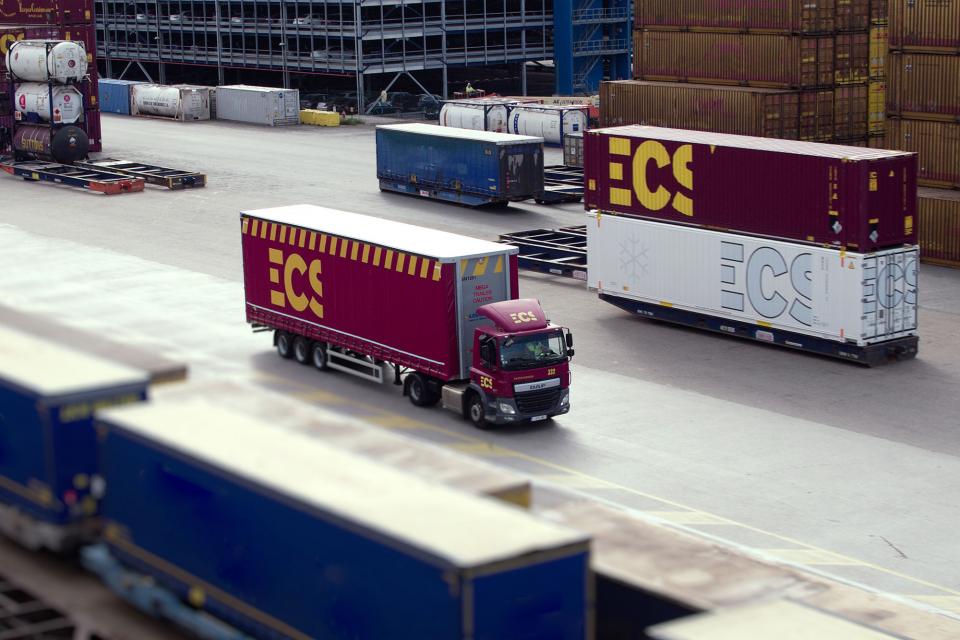In the first year after the new Brexit measures, ECS processed no less than half a million customs declarations internally, more than what most professional declaration agencies process. As a market leader in supply chain and intermodal transport and specialized in freight transport across the Channel, ECS was in fact forced to process this administration in-house. By strongly investing in automation and in-house employees to increase efficiency and reduce the risk of errors by external partners, ECS was able to meet this challenge and is preparing for the near future in which both the number of declarations and volumes will continue to grow.
Since January 1, 2021, producers are required to make customs declarations for all goods traffic to and from the United Kingdom. ECS offers its customers a service in which all those customs declarations are drawn up in-house. The door-to-door business unit and the supply chain unit together settled no less than half a million declarations in the first year after the implementation of this Brexit legislation. A gigantic number, since a professional declaration agency only processes between three and four hundred thousand declarations on average. In addition, ECS is also responsible for the transport of the goods.
Automated efficiencyIn recent years, ECS has developed a highly automated process to oil this enormous administrative machine. In addition, customers can provide data in various ways, such as in PDF, spreadsheets, or via EDI connections. As soon as a load arrives, the system automatically processes that data and is poured into a declaration form. In the door-to-door business unit, this is done via EDI connections, within the supply chain this process is fully automated.
This year, ECS leaped from zero to five hundred thousand customs declarations. Next year, that figure will continue to grow along with the volumes of goods processed by ECS. “We expect an increase of 15%,” said Supply Chain & Development Director Hugo Donche. “In addition, we hope to use the door-to-door service to convince more customers to let us handle all their administration instead of working with external parties. Because we process as much in-house as possible without external parties, we reduce the risk of errors and increase processing speed and efficiency. Many professional customs agents still work manually, but that is not feasible as a transporter. Especially in the retail sector, everything must happen very quickly, which means the impact is greater when customs documents are not in order. There is more margin for this within the deep sea.”

Process-driven mentalityThe customs department within the door-to-door business unit is a new department consisting of five employees. They handle loading, pre-notification, unloading, and customs on the EU and UK sides. A separate team of four people is responsible for the business unit supply chain and manages all automated processes. It is striking that they initially had little experience with customs declarations. A conscious choice according to Hugo Donche. “We assume a process-driven mentality. Due to the volumes we handle with ECS, we must focus on automation. As a result, you do not necessarily need experienced customs officers who know all aspects of the job. More important are people who see what is needed, know the legislation, and know which automated processes they can use based on that. Of course, everyone has followed customs training to acquire the necessary basic knowledge.”
An additional restriction applicable from this month onwards is the mandatory advance drafting of customs declarations, which increases the importance of an automated declaration system. "We are in a good starting position for this tightening," Donche assures us. "In our system, we control all the data ourselves and there are hardly any external partners involved. That means that there are fewer links where things can go wrong. As a result, customers can count on a faster and more reliable channel crossing. What's more, we put maximum effort into unaccompanied shipping, which means that drivers never have to wait in the port."
